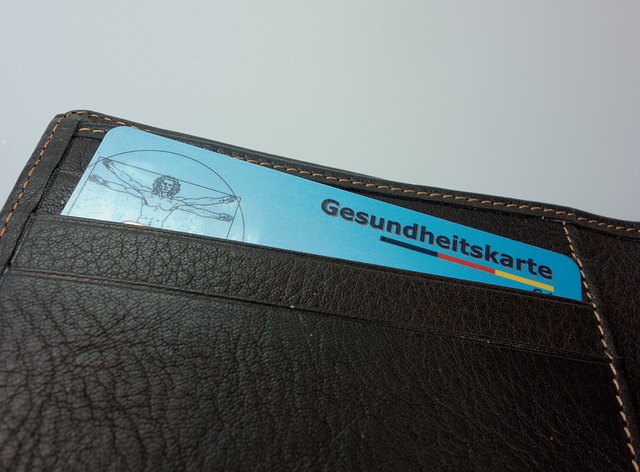The Insurance Regulatory and Development Authority of India (IRDAI) has banned insurers from advertising unit-linked motor insurance policies as investments. This move aims to protect consumers by promoting transparency in car insurance marketing. Insurers must now emphasize coverage details like accidents and natural calamities, shifting from investment-centric messaging. The directive builds trust between insurers and policyholders, empowering them to make informed decisions about vehicle protection.
The Insurance Regulatory and Development Authority of India (IRDAI) has taken a significant step towards consumer protection by banning insurers from advertising unit-linked policies as investment products. This directive aims to promote transparency in the motor insurance market, especially for comprehensive car insurance options. By clearing the air around these complex policies, IRDAI empowers policyholders to make informed decisions, ensuring they understand their coverage and risks. This move marks a new phase in regulatory efforts to safeguard consumers and reshape insurance advertising strategies.
- IRDAI's New Directive: Banning Unit-Linked Policy Ads as Investments
- The Purpose: Protecting Consumers and Promoting Transparency in Motor Insurance
- Impact on Insurers: Changes in Marketing Strategies for Comprehensive Car Insurance
- Consumer Benefits: Enhanced Understanding of Motor Insurance Policies
- Future Implications: Navigating the New Landscape for Insurance Advertisements
IRDAI's New Directive: Banning Unit-Linked Policy Ads as Investments

The Insurance Regulatory and Development Authority of India (IRDAI) has issued a new directive banning insurers from advertising unit-linked policies as investment products. This move aims to clarify the distinction between motor insurance and investment schemes for consumers, especially when considering comprehensive car insurance options. By removing any potential confusion or misleading marketing practices, IRDAI hopes to empower policyholders to make informed decisions about their financial security.
This stringent measure reflects a broader commitment to transparency and consumer protection within the Indian insurance market. It underscores IRDAI’s dedication to ensuring that policyholders fully comprehend the terms and conditions of their insurance policies, thereby fostering a more robust and reliable insurance ecosystem.
The Purpose: Protecting Consumers and Promoting Transparency in Motor Insurance

The primary purpose behind this directive from IRDAI is to safeguard consumers in the motor insurance sector. Unit-linked policies, while marketed as investment opportunities, can be complex and misleading for many policyholders who may not fully comprehend their coverage or the associated risks. By barring insurers from advertising these as investments, the authority aims to promote transparency, ensuring customers receive clear information about their car insurance options. This move encourages consumers to make informed decisions, understanding that motor insurance is a necessary expense for vehicle ownership rather than an investment venture.
Promoting transparency is crucial in fostering trust between insurers and policyholders. By providing straightforward details about policies, customers can better assess their needs and choose the right coverage without falling prey to false advertising or misunderstandings. This, in turn, leads to a more stable and ethical insurance market.
Impact on Insurers: Changes in Marketing Strategies for Comprehensive Car Insurance

The IRDAI’s directive will significantly impact insurers’ marketing strategies for comprehensive car insurance. Previously, insurers could promote unit-linked policies as investment opportunities, attracting consumers seeking both protection and returns. Now, they’ll need to restructure their messaging to focus on the insurance aspect while highlighting features like coverage for accidents, natural calamities, and third-party liabilities. This shift will necessitate a move away from investment-centric campaigns towards ones that emphasize risk mitigation and peace of mind. Insurers may need to invest in new marketing collateral and refine their digital presence to effectively communicate these changes to potential policyholders.
Consumer Benefits: Enhanced Understanding of Motor Insurance Policies

By barring insurers from advertising unit-linked policies as investment products, IRDAI is empowering consumers with a clearer understanding of their motor insurance policies. This move ensures that individuals considering comprehensive car insurance are not misled by the investment potential often associated with such policies. Consumers will now be able to focus on the core benefits of motor insurance—protection against financial loss in case of accidents or damage to their vehicles—without being swayed by speculative investment claims. This enhanced transparency fosters trust between insurers and policyholders, promoting informed decision-making in the insurance market.
Future Implications: Navigating the New Landscape for Insurance Advertisements

The IRDAI’s decision to bar unit-linked policy advertising as investment products will significantly reshape insurance marketing strategies. Insurers must now adapt their communication approaches, focusing on the core features and benefits of motor insurance policies rather than their investment potential. This shift could lead to more transparent and education-focused advertisements, empowering consumers with a clearer understanding of their coverage options.
Looking ahead, insurers may invest in creative campaigns that highlight the safety and security aspects of comprehensive car insurance, personalizing messages to resonate with different segments. Educational content, comparative analyses, and real-life scenario presentations could become prevalent, ensuring consumers make informed choices without being misled by investment-focused narratives.
The IRDAI’s new directive marks a significant step towards consumer protection and transparency in motor insurance. By banning unit-linked policy ads as investments, the authority ensures that policyholders have a clear understanding of their comprehensive car insurance options. This change in marketing strategies for insurers will empower consumers to make informed decisions, fostering a more honest and transparent insurance market.



